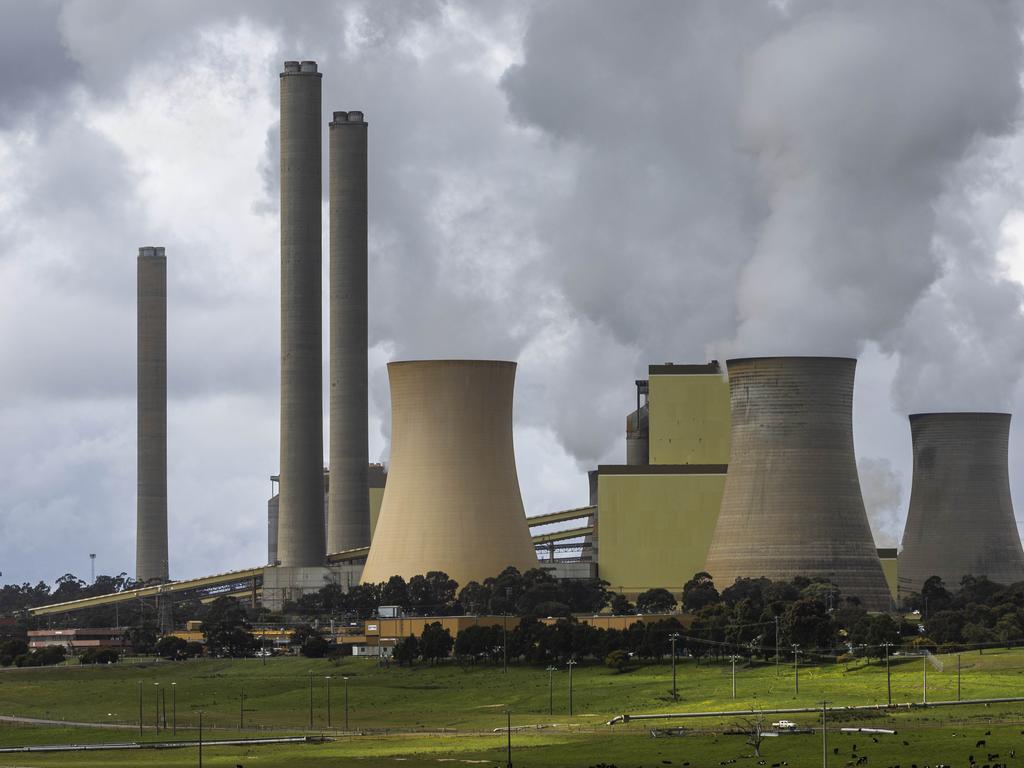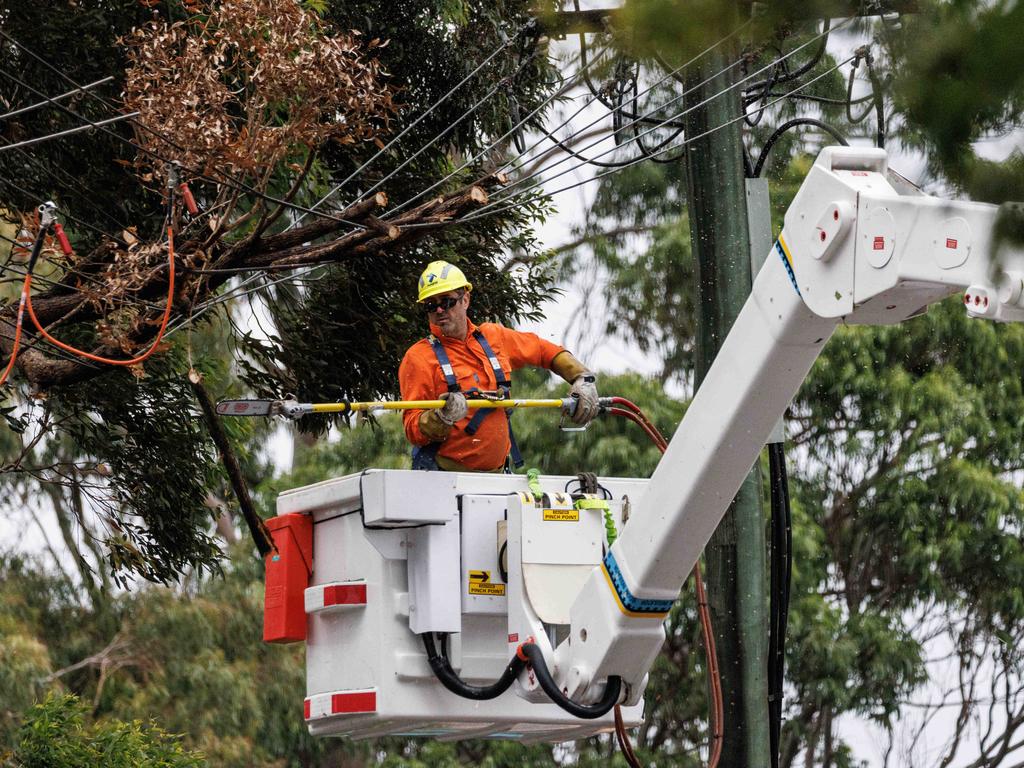Lift ban first, then explore viability of nuclear
There is irony in the fact ideological opposition to nuclear power was generated by environmentalists, who now are fixated on a net-zero emissions target that only nuclear power can achieve.

The irony shouldn’t be lost on anyone that ideological opposition was generated by environmentalists who now are fixated on a net-zero emissions target that only nuclear power realistically can achieve. Assuming baseload certainty matters.
To be sure, nuclear isn’t the whole solution but it needed to be part of it. Nuclear and renewables are not mutually exclusive options for addressing our energy needs.
Equally ironic, ideological advocates for nuclear power largely think the net-zero target is a furphy. Yet without such a target nuclear power as part of our energy mix probably doesn’t stack up economically. It needs the comparative advantage carbon pricing gives it over dirtier alternatives such as coal and gas that also help deliver adequate baseload power, unlike solar and wind.
Politicians should be energy agnostic when making policy evaluations.
Opponents now say building nuclear plants is too costly and will take too long. Maybe they are right. But those playing the role of nay-sayers are from the same tribe that opposed building nuclear power plants for other reasons when doing so was economically viable and would have set us up for where we needed to be now. Had we gone nuclear decades ago we’d have a realistic chance of meeting emissions reduction targets, avoiding baseload power shortages that are going to get only worse, and keeping energy prices in check.
Australia has a third of known uranium deposits, and that’s despite surprisingly limited exploration. We are already the third largest exporter of uranium, despite limits placed on the mining of yellowcake. Yet we never built a nuclear power industry of our own. The failure has been bipartisan.
To the great shame of the Howard government, in Senate horse-trading in 1998 it agreed to a moratorium on nuclear power.
When the Coalition foresaw the need to change that, commissioning an independent study into the use of nuclear power in 2006, it was already too late. Labor and the Greens were so wedded to ideological opposition to nuclear energy that achieving a shift was nigh impossible, despite the study finding that nuclear power was viable.
That was 18 years ago. Fast forward to today and the Labor government tells us maintaining the moratorium is appropriate even though it claims the economics of belatedly backing nuclear power doesn’t stake up. It certainly can’t stack up while a moratorium is legislatively in place, that much is true, but what about if it weren’t?
As a matter of pure logic, if the government is so certain nuclear power isn’t a better way to achieve reliable no-emissions energy delivery, what’s the harm in lifting the moratorium?
Maybe the nay-sayers are right and it is too late, but what if they are wrong again? If we don’t properly evaluate nuclear power again, free of political positioning, history could repeat itself. The advantage we have in uranium reserves must be part of the calculation when assessing energy security, as must our dependence on imports of renewable energy technology attached to wind and solar.
We have bipartisan support for the purchase of nuclear-powered submarines but we won’t be able to service their needs independently at home because we don’t have a nuclear industry (assuming you’re naive enough to believe the AUKUS deal will eventuate).
Such dependence on the US militarily is matched by our dependence on China when it comes to renewables. Solar panels are virtually 100 per cent imported, mostly from China. The same is true for wind turbines and batteries. And make no mistake, the dependence on imports will never end; as existing solar, wind and battery infrastructure reaches its end of life it will need to be replaced. In a world where energy security is a rising concern this is a problem.
Compare Australia with Canada. It has a similar population, it is also a geographically large country and it has like-for-like deposits of uranium. A whopping 95 per cent of the nuclear supply chain in Canada is sourced domestically. Energy prices there are dwarfed by what Australian consumers are paying in the current cost-of-living crisis, and our prices are expected to balloon further.

The jobs generated and the educational opportunities covering STEM and skilled trades in Canada are their own vibrant industries because of nuclear power – another missed opportunity for us. And Canadians have end-to-end domestic energy security, guaranteed baseload power and a supply structure that meets the goal of net zero.
Is it too late for us to go down a similar path, as Canada did so successfully? Perhaps. But we can’t even get out of first gear by removing the moratorium to find out what business interest might start to look like, free from constraints.
If government won’t play a role considering nuclear it should at least remove the shackles (and distorting subsidies) we impose and let the market decide. Maybe the private sector will bet on renewable targets not being achieved on the back of growth in renewables technology, which requires continuing advances that aren’t guaranteed, and will make the investment in anticipation of government eventually coming to it cap in hand to access nuclear-generated baseload power.
Labor, however, wants to bet the farm on renewables getting to where they need to and won’t even lift the moratorium as a prudent arbitrage in case they don’t. It is the same cautious logic that climate change sceptics can’t get their collective heads around – understanding why planning for the possibility of climate change, even if you have your doubts, is prudent policymaking.
The opposition looks set to take a nuclear policy to the next election, but it can’t have modelled its viability adequately from opposition. It needs the resources of government to do that properly. If the modelling is wrong the Coalition will get into government and not want to break its promise, building nuclear reactors even if ultimately the numbers don’t stack up. We need to embrace bipartisanship and then embrace the possibility of going nuclear to know with certainty whether the business case for doing so stacks up, free of the debilitating ideological dogma that has dominated this debate for far too long.
Peter van Onselen is Winthrop professor of politics and public policy at the University of Western Australia.








Australia’s long-term unwillingness to even consider nuclear energy has been one of the more embarrassing policy failures in our history. The delays, ideological opposition and scare campaigns have put us in the worst position: needing it now but too late to the party.